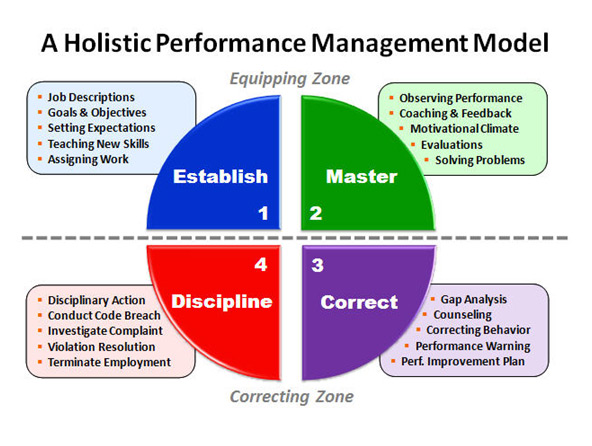If You Haven’t Coached Them, You Haven’t Earned the Right to Lead Their Performance Evaluation Discussion
Posted in Assessments & Evaluations, Latest Leadership Posts, Leadership Development & Training, Performance Management, Talent Development & Training, Team Building & Alignment on Jun 09,2015
Every week or two there’s another article that tosses performance evaluations under the bus and advises employers to avoid them like some nasty strain of corporate Ebola. Most of the articles go on to state how many reviews they one-way conversations in which an employee’s supervisor criticizes performance and directs the employee to fix it (the “or else,” is implied). The employee leaves the meeting thinking about how unappreciated they feel, not on improving their performance.
Enough already!
The problem IS NOT any of the following:
- Employees being held accountable for their performance, behavior, and actions.
- Employers having regularly scheduled performance evaluations.
- Employers having a defined process to conduct the performance reviews.
- Performance evaluations are inherently evil, de-motivating, and ineffective.
What the problem IS, is a combination of two related factors:
- During the performance period being measured, the manager has not done an effective job to help his or her employees master their duties, assignments, and
- The performance evaluation process itself is poorly conducted.
Some months back I introduced the concept of Holistic Performance Management, in which effective managers and leaders should spend 80% of their time in equipping their employees for success. Performance evaluations are a key part of equipping employees to succeed, as the diagram below shows. Notice that it is associated with activities such as observing performance, coaching, feedback, motivation, and helping employees solve problems.

Here are five ongoing activities that MUST precede a performance evaluation, if it is to be effective:
1. Establish clear expectations with every employee. Without clear expectations managers have no right to expect performance. With clear expectations, the employee knows:
a. What is expected (quantity and quality) and why its accomplishment is important;
b. The assignment’s due date and resources available to them; and
c. How and when progress will be measured.
2. Assure the employee has been taught all necessary skills that will be required to successfully achieve what is assigned. Teaching has not been completed until the employee can repeat success at will.
3. Observe the employee performing his or her duties. This is not an occasional event, rather it should be a scheduled weekly activity.
4. Provide coaching and feedback for the purpose of helping the employee master the performance. Coaching is the process of guiding self-discovery, so getting the employee to self-assess his or her own process is the objective, not the manager giving opinions the manager believes he/she has observed. Here are three highly effective coaching questions you could ask:
a. In working on {x}, what went well for you?
b. In working on {x}, what didn’t go as well as you would have liked?
c. If you could do it all over again, what do you think you’d want to do differently?
Feedback should be offered only after the employee has been asked, and has answered, the coaching questions.
5. Create the right motivational climate for employees to succeed. Here’s a shocker: managers cannot motivate anyone…but managers certainly can create the environment under which someone will motivate him/herself. Each person has his or her own unique set of motivators, and these will change over time depending on the individual’s life circumstances. Understanding what the person’s motivators are at the moment will help managers tailor an approach to tap into an employee’s motivational reservoir.
If your management is characterized by living out these five activities, then employees will be much more open to having a formal performance evaluation. They will feel valued and appreciated by a manager who has invested quality time in their development.
Conducting an effective performance evaluation requires the right preparation, execution, and mindset to make the evaluation discussion a true planning dialog, which was the intent of having a performance review. Here’s a great resource about performance evaluations employees love.
Bottom line: Performance appraisals have rightly gotten a wrong reputation because they have been viewed by some to be an activity independent of all the activities that should precede them. When the right steps have been taken, a performance review becomes a helpful and accepted part of ongoing employee development.
This blog is based on the principles taught in BMG’s Leading Through People leadership development program.
Boyer Management Group works with employers, organizations, and employees alike to help them become more successful. For employers, we offer world-class talent development, leadership and management training, acquisition and onboarding tools and programs to help employees and volunteers achieve consistent, optimal performance. For job seekers and universities, we offer tools, assessments, books, and curricula to help connect people with careers. To find out more, please visit us at info@boyermanagement.com, or call us at 215-942-0982.
Latest Leadership Posts
Give Your Development Plan Transforming Power Continue Reading
The World’s Most Powerful Self-Development Tool Continue Reading
Better Ways to Manage Stress in 2026, Part 2 Continue Reading



